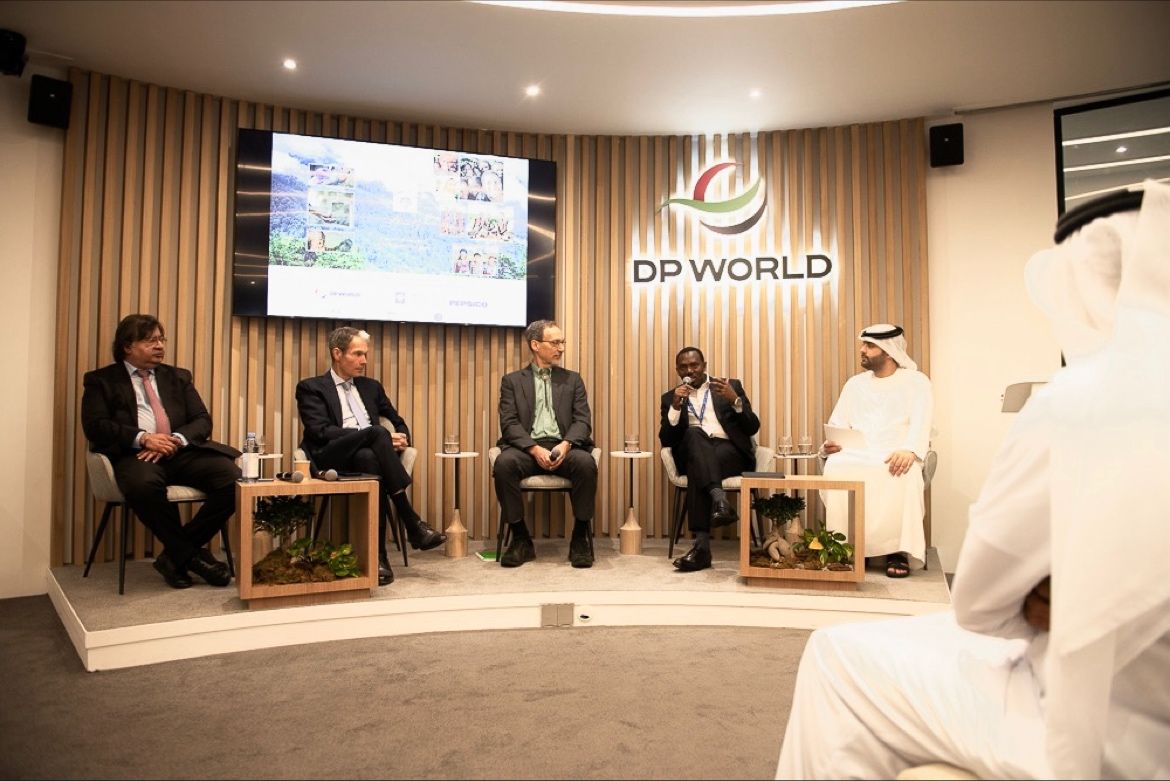Almost every nation is making efforts to achieve Net Zero, which involves reducing greenhouse gas emissions, implementing renewable energy, and re-absorbing CO₂ emitted, through technological advancements.
The recent COP28 meeting in Dubai was a success. It brought together individuals from different sectors to collectively tackle this challenge.
In a conversation with The Finance Story, Ravi Suri, Global Head of Sustainable Finance and Impact Investing at KPMG, explains how the pursuit of Net Zero can not only benefit the environment but also create job opportunities that entail skill sets from various disciplines.
Excerpts from the interview.
Ravi, can you talk us through your role at KPMG and why fighting climate change is so important?
Sustainable Finance and Impact Investing are not new concepts; they came into play approximately 20 years ago, under the erstwhile concept of Corporate Social Responsibility (CSR).
But that was more of a soft approach to tackle the issue of climate change.
In that era, banks came together and formed the ‘Equator Principles’, which was the first shot at trying to fight climate change. I was fortunate to be a part of the committee’s discussions while the rules were being formulated.
The Equator Principles provided a guideline for determining the acceptable level of carbon emissions for projects like refineries, and power plants that could receive financing from international banks.
While they excel at generating power, their actions harm the environment by emitting carbon, which ultimately contributes to global warming. As a responsible business, they have to find a way to reabsorb the carbon.
Sustainable finance and impact investing originated from here, with the primary principle being that you must consider the cost of environmental damage when calculating profits.
If your actions benefit the environment, you receive credit, but if they have a negative impact, you deduct it from your profits to account for the harm caused.
In 2010-11 this concept started gaining traction when we realized the impact of climate change.
If we do nothing, we won’t be able to curtail the temperature rise to 1.5 degrees Celsius, which is critical if we want to make our planet habitable.
Thus fighting climate change is very important and organizations are aligning their goals with the commitment to reach Net Zero emissions, setting targets to achieve it, by 2030, 2040, or 2050.
It’s crucial to emphasize that 2050 represents the deadline for offsetting emissions.
My role is to advise clients on obtaining sustainable finance and to put abatement policies and infrastructure in place to achieve Net Zero.
Many instruments are available to mitigate technology and political risks, to obtain the financing to meet Net Zero commitments.

The deadline for offsetting and controlling earth’s temperatures to 1.5°C is 2050. If a business aims to achieve sustainable finance, what tools or strategies should it explore?
Certain companies may find it more challenging to achieve this commitment due to the nature of their sectors, while others may find it easier.
Nevertheless, every company must make this commitment to get to Net Zero, and they are doing so. To fulfil this commitment, a robust POMP model should be used. What does this mean?
Policy: This is the first step to be implemented in the POMP model wherein the framework to achieve Net Zero is clearly articulated as a policy.
Offset: Companies can purchase carbon credits to compensate for their carbon emissions. There are various carbon trading mechanisms available, and the price of these offsets should measure both profit and impact on the planet.
Measure: Tracking and measuring carbon emissions is a difficult task, but it is crucial. We need to utilize tools like AI to monitor and measure carbon emissions accurately.
Pricing: Consider the pricing impact of the carbon emission, which takes into account the role of technology in reducing carbon footprint and the cost of the offset. Once you have formulated a comprehensive plan for embracing technological advancements, let’s say implementing a series of solar power or newer technologies, you have to factor in the pricing implications.
All countries around the globe are embracing it. Nevertheless, I can say without a doubt that the Middle East is leading this initiative.
Why should professionals venture into climate finance and impact investing? What roles are in demand for this space?
Profit and combatting climate change can go hand in hand. They are not mutually exclusive. This is a crucial point to understand, as it presents an opportunity for us.
Initially, when Solar Power became popular in 2006-2007, it was expensive. Companies couldn’t afford its implementation. However, the government stepped in and provided subsidies to promote its generation.
Fast forward to today, solar power has become more affordable than any other power source, and it is profitable on its own.
What led to this cost reduction? It was the result of advancements in science, technology, and innovation.
We now have 6 to 7 new technologies at our disposal for instance Carbon Capture and Direct Air Capture. By adopting these technologies, refineries can further drive down costs and become profitable.
This is where young people can seize the opportunity.
For graduates and those looking to switch careers, entering the field of climate finance and impact investing presents a once-in-a-lifetime opportunity.
We have until 2050 to fight climate change, so it’s a long-term game. Over the next 10 to 20 years, there will be immense potential for growth and success in these fields.
There is a need for talent from various fields such as,
- Accounting
- Assurance
- Regulation
- Project Development
- Technology
- Engineering
- Science
Various institutions require this talent:
- Large industrial houses with holding companies: Governments around the world are implementing regulations mandating mandatory carbon accounting for companies reaching certain sizes or emission thresholds. If you are adept at Carbon accounting, you can easily enter this field.
- Banks: Banks will need this talent for their due diligence when they evaluate sustainable finance opportunities.
- Private equity firms: Private equity can be a powerful tool for impact investing, allowing investors to support promising enterprises tackling social and environmental challenges while aiming for attractive financial returns.
- NGOs: Many NGOs play a crucial role in tackling climate change through a diverse range of activities and contributions. If you have one of the above-mentioned skillsets you can work for one of those and do your part.
If you aspire to become an expert in carbon accounting, the first thing you must master is accounting.
Once you have a solid foundation in accounting, you can then explore the various other skills related to carbon accounting, such as legal technology, the science behind carbon emissions and capture, and understanding the regulatory landscape.
If anybody says that he/she is a sustainability expert, don’t believe them. This is a complex topic that demands multidisciplinary skills.
You must acquire basic knowledge in multiple areas.
How do you balance the constant inflow of information regarding climate change? Are there any resources for professionals looking to pursue a career in this particular field?
As a Global Head for Sustainable Finance & Impact Investing at KPMG Portugal I have to stay updated on everything related to climate change.
Here is how I do it…
Professional courses
I take up relevant courses, exploring various options. You can find some excellent sustainability courses offered by Cambridge University with certificate programs.
Meeting with clients
I learn a lot when engaging clients or people who are well-versed in that area.
I post frequently on LinkedIn, regarding climate change. I research thoroughly before creating the content which contributes to constant learning and reading.
LinkedIn is a powerful platform, filled with insightful posts from many individuals, which I keep track of.
Internet
I read extensively through news agencies. I dedicate at least 2 to 3 hours a day to learning, understanding, and keeping abreast of rapidly changing trends.
What are some other everyday actions individuals can take to further reduce their carbon footprint?
The fight against climate change may not be an easy one, but we will win this battle.
The world is uniting, with the science community, the finance community, the engineering community, regulators, and governments all coming together to find a solution.
You could reduce your carbon footprint by making changes to your eating habits, such as reducing meat consumption and optimizing your electricity usage to avoid wastage.
Even small actions like buying one polyester shirt instead of three can make a difference.
The COVID pandemic has brought about an interesting shift in the fight against climate change, as more people are now working from home, a concept that is widely embraced.
Not only the technology help, but technology and innovation show the way going forward. Every one of us can do our part to help battle climate change.
Ravi Suri’s extensive background as a Chemical Engineer, Project Finance Banker, Private Equity Professional, and Sustainable Finance Consulting Advisor, coupled with his work in over fifty countries over the past two decades, allows him to share his thoughts in this field.
(Image edited by Abhinav Bhardwaj)







